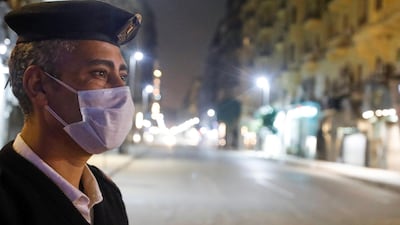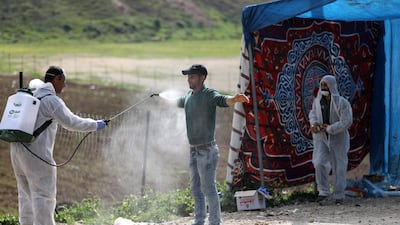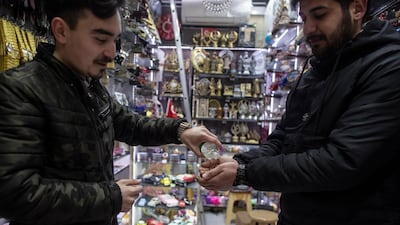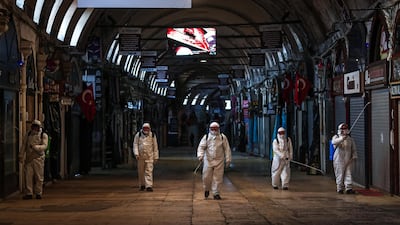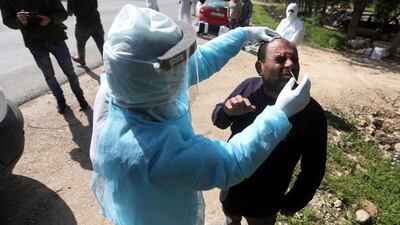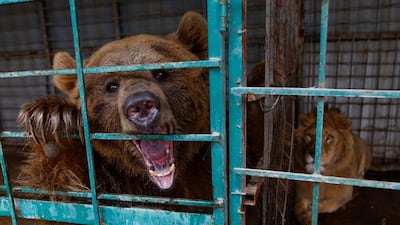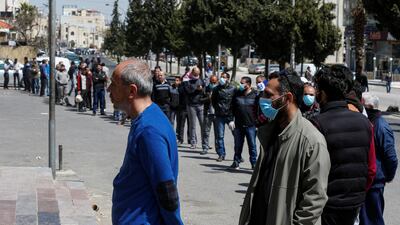Residents of Baghdad are largely ignoring a curfew meant to contain the coronavirus, a senior Iraqi parliamentarian said, as deaths from infections mount.
Hassan Al Kaabi said people in the capital “do not care about the curfew”, adding that violations were acute in Rasafa, the neighbourhood on the eastern bank of the Euphrates. More than seven million people live in Baghdad.
Mr Al Kaabi heads a special parliamentary committee set up to deal with the virus. He made his comments after a visit to the police operations room in Baghdad this week.
He called in a statement for “immediate and dense” deployment of the army in residential areas to enforce the curfew, which was imposed on March 17.
Faced with widespread violations, authorities warned on Wednesday that anyone breaking the curfew faced arrest.
Iraqi populist cleric Muqtada Al Sadr urged the public to follow the measures set out by the government, reversing earlier statements that encouraged his Shiite followers to mix and together mark religious occasions.
"If they [in Sadr city] do not abide, then they will not belong to Sadr city in the future," the cleric said on Twitter.
Mr Al Sadr called on imams to perform Friday prayers at home only with seven people.
"The others must adhere to a general curfew," he said.
The coronavirus pandemic is highlighting Iraq’s state failures since the country’s first free elections in the post-Saddam Hussein era 15 years ago resulted in Shiite political ascendency.
Corruption, regional businessmen say, is worse than under Saddam and his two sons. Despite Iraq’s status as top oil exporter, infrastructure and basic services barely improved from a nadir under UN sanctions from 1990 to 2003.
The Health Ministry said 29 people in Iraq had died from the coronavirus as of Wednesday. Local media reports about bodies of suspected Covid-19 victims overwhelming morgues in Baghdad and the south suggest that death rates could be higher.
Iraq’s response to the pandemic has been undermined by power struggles among the ruling Shiite elite and open borders with Iran, which supports an array of Shiite militias in Iraq and across the Levant. Iraq is also a transit hub for Iranian support to the Syrian regime.
Last week crowds attended a commemoration at a shrine in Baghdad that involves kissing the grave of one of the 12 Shiite imams.
Ayatollah Ali Al Sistani, Iraq’s highest Shiite authority and a relative moderate, has called on the population to obey the government's lockdown order.
But Mr Al Sadr, a younger cleric and a major player in the ruling system, urged his mainly young supporters to mark the occasion of the death of Imam Al Kadhim.
On Wednesday the Health Ministry called for help from religious authorities to convince people to bury the victims of the coronavirus.
Fear and lack of know-how to deal with infected bodies largely stopped burials of those killed by the pandemic.
The ministry recommended following World Health Organisation guidelines, which it said would guarantee safe burials “in any cemetery as long as the precautions are taken”.
